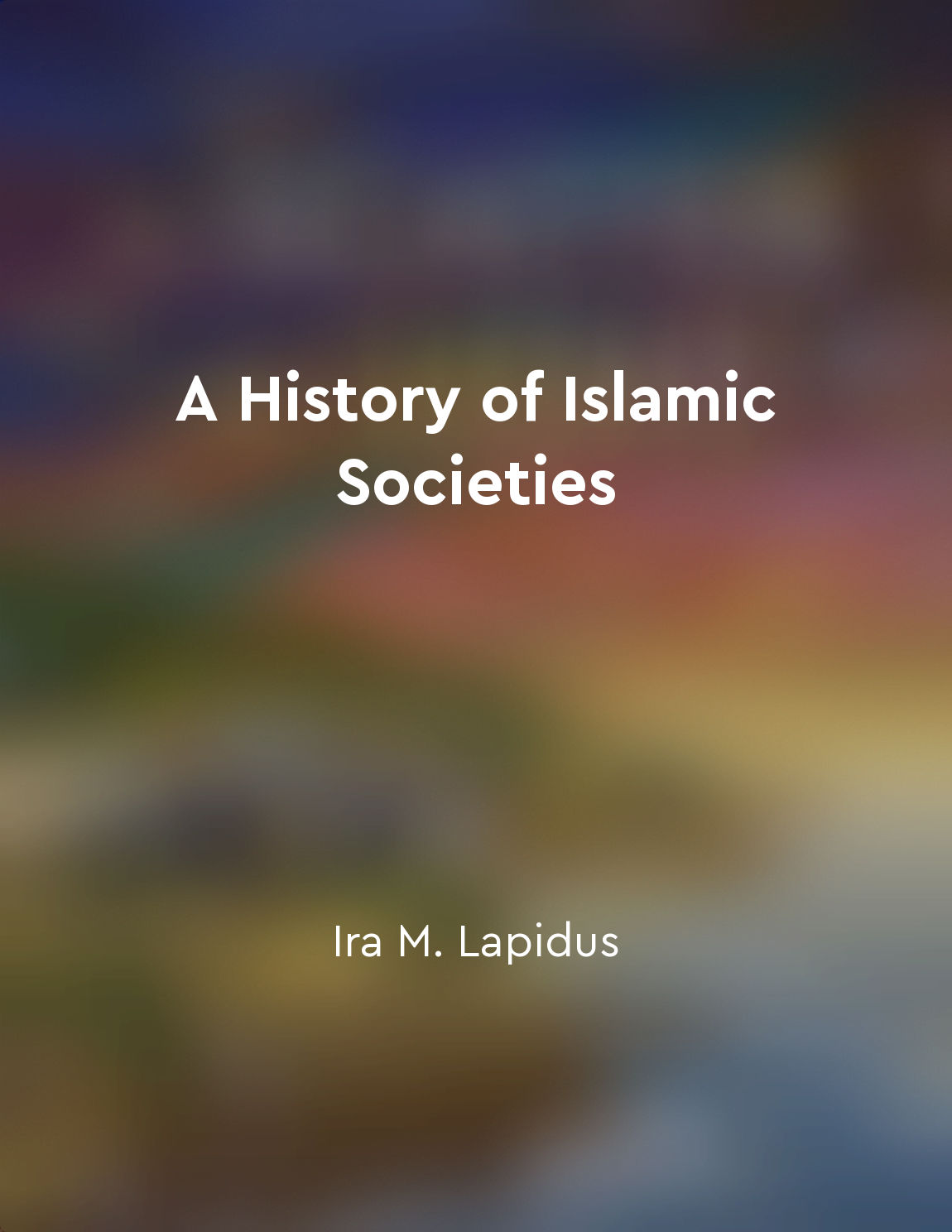The Arab Spring brought about significant political changes in Islamic societies from "summary" of A History of Islamic Societies by Ira M. Lapidus
The Arab Spring was a series of protests and uprisings that spread across the Middle East and North Africa in the early 2010s. It began in Tunisia in December 2010, when a street vendor set himself on fire in protest against government corruption and lack of economic opportunities. This event sparked widespread demonstrations in Tunisia that eventually led to the ousting of President Zine El Abidine Ben Ali in January 2011. The success of the Tunisian revolution inspired other countries in the region to rise up against their own authoritarian governments. Protests erupted in Egypt, Libya, Yemen, and Syria, among others, as people demanded political reform, greater freedoms, and an end to corruption. In Egypt, mass demonstrations in Tahrir Square forced President Hosni Mubarak to step down in February 2011 after nearly 30 years in power. This marked a significant turning point in the country's history and opened the door for democratic elections. Similarly, in Libya, the Arab Spring led to a civil war that ultimately resulted in the overthrow of dictator Muammar Gaddafi in October 2011. The country descended into chaos in the aftermath, but the revolution demonstrated the power of popular uprising in challenging oppressive regimes. In Yemen, President Ali Abdullah Saleh was forced to resign in February 2012 after months of protests against his rule. The country's political transition was rocky, with ongoing conflicts and power struggles, but the Arab Spring had brought about a significant change in leadership. Syria, on the other hand, descended into a brutal civil war that continues to this day. What began as peaceful protests against President Bashar al-Assad's regime quickly escalated into a violent conflict with devastating consequences for the country and its people.- The Arab Spring brought about significant political changes in Islamic societies by challenging entrenched authoritarian regimes, inspiring mass mobilization for political reform, and paving the way for greater freedoms and democratic transitions. The events of the Arab Spring demonstrated the power of grassroots movements in shaping the political landscape of the Middle East and North Africa.
Similar Posts

The promise of democracy remained elusive
The idea that democracy could flourish in the Arab world had once seemed like a real possibility. The uprisings of 2011 had bro...

Militarization became entrenched
The military's dominance within Egypt's political landscape solidified over time. As protests subsided and the initial chaos of...

Civil wars erupted
The Arab uprisings of 2011 sparked a wave of hope and excitement across the region. People believed they were on the brink of a...


